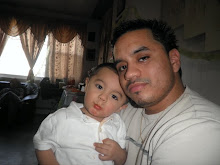
Whenever we hear the word 'endangered,' we usually think of animals or perhaps plants. However, in the New York Times article "Listening to (and Saving) the World's Languages," Sam Roberts writes about efforts made to save endangered languages. Globalization, assimilation, and a failure to appreciate the value of language, have all played part in discouraging speakers from carrying on their language to future generations. As a result, when the older generation dies off, the language also dies off. Luckily, some speakers are taking steps to revive their languages by starting classes and creating programs to promote the use of their native languages.
I found it particularly interesting that native speakers would see no value in continuing to speak their native language. In my own experience, I grew up not speaking spanish and regret not taking an initiative to learn the language earlier. Now, as I build my spanish speaking ability, I find it difficult to separate the rules of English from those of Spanish, which makes me wonder: Can linguists truly capture the ideas and concepts of these endangered languages without slipping a bit of their own understandings of language? What does a linguist do to record an idea that does not exist in their own native language and is it even possible to record such an idea if the linguist cannot express it in his or her own language?






